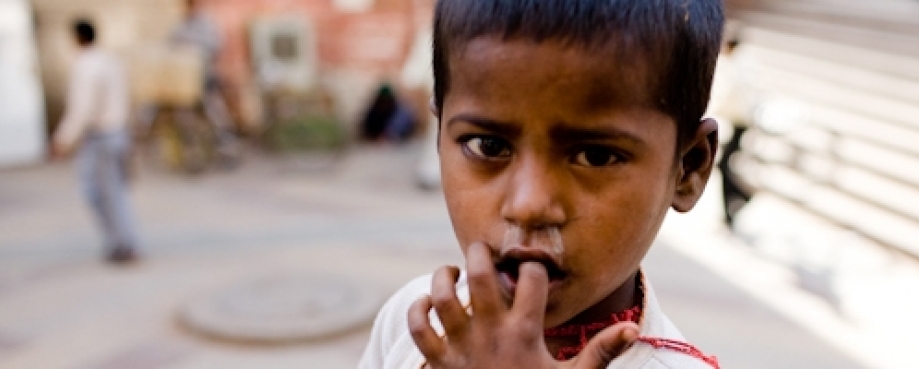
On Monday, world leaders will be attending a summit in New York to discuss how to accelerate progress towards the Millennium Development Goals (MDGs), the international development targets aimed at slashing poverty, hunger, disease, maternal and child deaths and other scourges by 2015.
Coming amid mixed progress and the deepest global recession since the Second World War, UN Secretary General Ban Ki-moon has heralded the summit "a crucially important opportunity to redouble our efforts to meet the Goals."
He's not exaggerating: according to development experts, this year is our last chance of having a hope of achieving them.
What role does ethical trade play in this? Does it even have a role?
The terminology often used in ethical trade - of inspections, audits, corrective actions, compliance, training and capacity building and so on - somehow suggests formalised workforces in big factories, far removed from where the supposed ‘real work' of poverty alleviation takes place.
But the reality is that the incomes and working conditions of millions of working people around the world - including those making products for major international retailers - keep people trapped in poverty, with no aspiration other than to hope that on any given day, they and their children are fed, clothed, warm and dry.
And many of those people work in the informal sector - for example as casual workers, or home workers, or migrant workers - with no knowledge of their rights, no recourse to trade unions, and no access to the social protection available to the formal workforce.
In fact, work is double-edged: while it provides the main opportunity for people to escape poverty, without respect for workers' rights, it keeps them locked into it.
That's where ethical trade comes in. It's about improving the quality of peoples' working lives, raising their incomes so they can plan for the future, increasing their physical safety and wellbeing, protecting their job security and so reducing their vulnerability to risk. Crucially, it's also about giving them a voice. All of this is vital to combating poverty.
It is therefore inextricably linked to the MDGs.
Some very useful reports have recently been published that set out how decent work - rather than work at any cost - contributes to the achievement of the MDGs. Below is a quick summary of the links between ethical trade and each goal.
MDG1. Eradicate extreme poverty and hunger
Efforts to achieve the ETI Base Code clause on the living wage directly address this.
MDG1a. Ensure productive employment and decent work for all.
This was introduced as a cross-cutting MDG in 2005. As ethical trade is so closely linked to decent work, it is directly related to achieving this goal.
MDG2. Achieve universal primary education
Eradicating child labour is fundamental to achieving this goal. Efforts to raise workers' wages, so that parents can afford to send their kids to school, are also key.
MDG3. Promote gender equality and empower women
The majority of people working in our members' supply chains are women, but gender inequality, sexual harassment and discrimination against women in recruitment, reward and promotion persist. The ETI Base Code clause specifically addresses discrimination against women. Ethical trade efforts should also proactively empower women and give them a voice.
MDG4. Reduce child mortality
This is also linked to wages and maternity rights. Ensuring women have adequate maternity rights, providing crèches, keeping a lid on overtime so working women have the time to spend with their babies - and providing a decent wage - will all contribute to achieving this goal.
MDG5. Improve maternal health
Mothers are also workers. Ethical trade efforts should involve paying particular attention to ensuring their health is protected while they are working, and that their suppliers are ensuring their economic security while they are pregnant and during their maternity leave.
MDG6. Combat HIV/AIDS, malaria, and other diseases
Some 90% of the 33 million people worldwide who live with HIV/AIDS go to work. Companies can play a major role in influencing their suppliers to tackle discrimination against people with HIV/AIDS and engage in prevention and treatment. In turn, these efforts will have knock on effects on many other workplace and poverty-related issues.
MDG7. Ensure environmental sustainability.
Negative environmental impacts of factories and farms including the use of dyes and pesticides also affect the health of workers, their families and communities. Conversely, companies implementing the Base Code clause on health and safety can also help reduce environmental impacts.
MDG8. Develop a global partnership for development.
Ethical trade efforts will only succeed in bringing widespread change for workers if they are done in partnership. Many ETI member companies have forged partnerships at a global level that are bringing about change for particularly vulnerable workers.
We all have a stake in eradicating poverty, as businesses, trade unions, campaigners and development charities - and human beings.
We need to do a much better job at understanding and connecting the many links between the worlds of ethical trade and poverty reduction if we are to have any hope of making real progress in either.
Useful links
Decent work and poverty eradication: A literature review and two-country study, Ergon
